On Cocreation and Codependency
Expanding the framework
This felt like it should come out on the New Moon, which is also 11/1, continuing the theme of triplets. It wasn’t going to be finished in time until I woke up feeling ill yesterday, adjusting my plans.
This yet again postpones my review/recommendation of Luminous Darkness, probably indefinitely. I will simply say that it is a beautiful, refreshing yin approach to meeting ourselves and our lives with acceptance and allowing and understanding, using the metaphor of darkness to explore that which we have judged or repressed. And yet it is not 100% in alignment with The Dendroica Project, as the author remains committed to a certain activism, a perspective of “we must heal ourselves so that we can heal our broken world” that does not fully resonate with me. I feel, at the deepest levels, that any “shoulds” or “musts” - any ideas that a journey of personal healing and awakening should be undertaken for a cause - get in the way of relaxation into being and into the weaving of the pattern.
I am deeply grateful to Emma Liles and Hannah King for their own resonant explorations of our true nature and for conversations over the past few weeks that have contributed to this framework.
As I explored in The End of Separation, we exist in a paradigm that privileges masculine aspects - will, structure, control - and devalues feminine aspects - discernment, flow, surrender. Honoring both can restore balance and create a synthesis, a co-creation, as I explored more deeply in A Framework. At the same time, I have come to realize that this isn’t the whole story. It’s not just true that we have too much will and not enough discernment, but also that the way we express and experience will and discernment is out of balance. And the same is true for many of the other couplets. This will be an exploration of four of them.
Choice
I have often said of myself that I don’t have a strong will, but that isn’t really true. I have plenty of interests and desires and wishes. What I lack is willpower - the ability to translate my desires into action by force of mind. Pondering the difference between will and willpower led me down a path of deeper understanding regarding the nature of separation and the structures and stories that hold it in place.
I’ll introduce this framework with a simple example. Let’s say I have a desire - a will - to get more exercise and to maintain a slimmer, healthier body. If I simply hold that as an intention - set it free - then I allow the pattern to weave with it, to bring running partners into my life, to present opportunities. And I am able to discern in each moment what feels best, to choose consciously.
Alternatively, if I judge my body negatively and decide that I must take action, I can excercise willpower to make a change. I can decide that I will go for a run at 7 am every morning. This decision creates an obligation, a constraint on discernment, and I am no longer free to watch the sunrise, or sip coffee in bed, or otherwise allow myself to discern what feels right at that time. If I am not sufficiently motivated to run every day, my mind might introduce some manipulation, some reward or positive feedback that I can only receive if I run, and ultimately my choice to go running is in servitude to my own mind and willpower. This sort of internal conflict and power imbalance might result in running more and getting in shape for people with stronger willpower than myself, but it does not allow for harmony and conscious choice.
Willpower and obligation are codependent, in the sense that each requires the other. Willpower necessarily creates obligation, and obligation only exists in the presence of willpower. This dynamic exists at three levels - internal, relational, and collective - and taken together results in our choices, our ability to exercise discernment, being constrained by layers of expectations laid upon us by ourselves and others.
Will and discernment are cocreative, in the sense that each maintains a sense of freedom. We have a will - or a wish or intention or desire - for something to come into being but we are not exceedingly attached to outcomes or timelines or methods. And we are free to discern, in each moment, which choice to make, unconstrained by expectations or obligations. Taken together, this allows for us to remain open to surprises and spontaneous happenings and last-minute changes, for us to co-create with the weaving of the broader pattern.
Action
Here I run into some limitations of the English language. Control, in this context, means to “make it so,” to craft guidance, as in “the thermostat controls the temperature in the room” and not “to dominate”, as in “the rebels control the western half of the country.” Similarly, surrender means “to let go”, as in “surrender to the mystery” and not “to submit”, as in “surrender to the invading army.” If we choose to take guiding actions in some cases while allowing the broader pattern to weave unimpeded, we are participating in the dance of cocreation, as we do when saving seeds from selected plants or encouraging cross-pollination.
If we are not open to surrender - if we are rigidly attached to a particular outcome - then we can impose authority, which necessarily requires obedience. Similarly, if we wish to be obedient, we require some authority - whether our own ideals or a fellow human or a religious doctrine - to obey. Authority and obedience are a codependent pair and ultimately lead to domination and submission, a state of imbalance.
Economy
If we honor both exchange, offering goods and services in return for payment or trade, and relationship, an intrinsic valuation of the other party, then we cocreate reciprocity, a world in which we ensure that everyone has what they need and everyone is equitably compensated for their contribution.
If instead we aim for extraction, for profit, for obtaining more than we give in return, then we necessarily require sacrifice. Extraction of “timber resources” through clearcutting requires sacrifice of forest habitat. If we ourselves choose to make a sacrifice - of our dreams for financial security, or of our time and energy for others’ benefit, then we allow others to extract from us. Sacrifice is disempowerment within relationship, based on a sense of obligation or expectation or virtue or necessity.
Ongoing extraction leads to accumulation, and ongoing sacrifice leads to loss - taken together, the vast inequality in wealth and power that pervades our economic system.
Creation
All that humans have created - our homes, cities, institutions, science, technology - represents civilization. All that simply is, that is continuously evolving and regenerating outside of our interventions - ecosystems, plants, animals, fungi, weather, Sun and Moon and planets, plate tectonics, grass in pavement cracks, even our own animal bodies - represents wildness. If we honor and acknowledge both, we can cocreate collaboration - integrative medicine, permaculture, systems that seek to break down one of the strongest divides we have constructed.
If we do not value and acknowledge wildness, we will seek management. Management necessarily produces a suppression of our innate wildness. Similarly, if we choose this suppression ourselves - if we deny the wisdom of our bodies and seek to wage war against our own mortality - then we seek out management in the form of public health directives, diagnostic manuals, “experts” to whom we are happy to hand over our authority.
The result of codependent management and suppression is the imbalanced state of bureaucracy and domestication. Perhaps bureaucracy seems a strange choice of words here, and I don’t mean it so much in the sense of “irritating red tape” as in the sense of governance by arbitrary rules. We accept that we are not officially born until we are issued a certificate and a nine-digit number, and similarly we are not officially dead until the requisite expert signs off. We agree to abide by the dictates of zoning laws, ordinances, building codes, tax codes, and insurance requirements. If we wish to be wild and spontaneous, we must fly under the radar and escape notice. The closer we get to the upper echelons of civilization, the more we must appear domesticated and compliant with expectations: all men in statehouses and executive suites must wear suits and ties, and all women must be “put together.”
The framework
In all cases, we have a balanced masculine and a balanced feminine that together are cocreative, and a dominant masculine and a disempowered feminine that form a codependent couplet that ultimately leads to imbalance.
How did we get here, and how do we restore balance?
Although identity-based oppression has its roots in separation and imbalance, this is not ultimately about identity. We all have all of these aspects within us. Furthermore it isn’t just about power and domination. Most of us choose to accept domestication and obligations, to make sacrifices, to be obedient not under direct threat but entirely of our own accord. And most of us accept extraction or profit when it benefits us, we aspire to positions of authority, and we view willpower as a good thing.
Ultimately these states of imbalance are maintained by stories embedded within our cultures and societies and religions. Stories about what it means to be a good person. Stories about the virtue of having willpower, or accumulating wealth, or being a “self-made man”, or fulfilling obligations, or making sacrifices for others or for long-term goals, or being obedient or “civilized.” And embedded within these stories is a great deal of fear and insecurity: fear of judgment or ostracization, fear of punishment, fear of death.
It may seem that I have strayed a bit from my focus on ecological spirituality, but ultimately ecological spirituality is about telling ourselves different stories. Stories in which we seek to cocreate rather than to succeed. Stories in which we are rooted in the land we inhabit. Stories in which we acknowledge our own wildness, in which we are not ashamed of our animal bodies, in which we understand that we are not truly separate from this remarkable living universe: the same sunlight illuminating our homes as powers tropical rainforests, the same water in our veins as in oceans and glaciers and vernal pools.
As we shift our focus from old human stories to ecological stories, we can begin to release our mind-identities, our egos, let go of our fears, allow judgments and obligations to slide off of us, accept that we are a part of the great dance of creation and evolution. And we can notice the way that natural systems neither self-suppress nor do battle with our extraction and willpower and management, but rather simply refuse to comply. The way that weeds evolve resistance to our poisons and spring up in our roads and sidewalks. The way that ants and spiders find their way into our homes. The way that floods overtop our levees and tornadoes appear spontaneously and follow their own winding paths. We can take a similar approach to the controlling and domesticating bureaucracies of our own making, slipping in wildness and noncompliance as the old stories begin to lose their power.
There is a tendency, I have noticed, to ascribe “natural disasters” to climate change, or to describe them as “acts of God.” It is much easier for us, within our current paradigm, to view these events as an outcome of active will or even our own failure than it is to accept that we inhabit a world fundamentally beyond our control. But if we can let go of our need to control we can also let go of responsibility, our feeling that we ought to somehow put this planet back the way we found it, before our conscious and unconscious acts of participation and domination. We can focus on acts of ecological healing not because we ought to, or because we feel guilty or obligated, but because we wish to, because we wish to weave ourselves and the greater pattern back into balance. We can accept ourselves as we are, forgive ourselves for our actions born of separation, even as we accept that the weaving of the larger pattern includes earthquakes and tsunamis and asteroid impacts that forever change ecologies and cause extinctions. We can tell ourselves stories in which we are neither good nor bad, but simply whole.



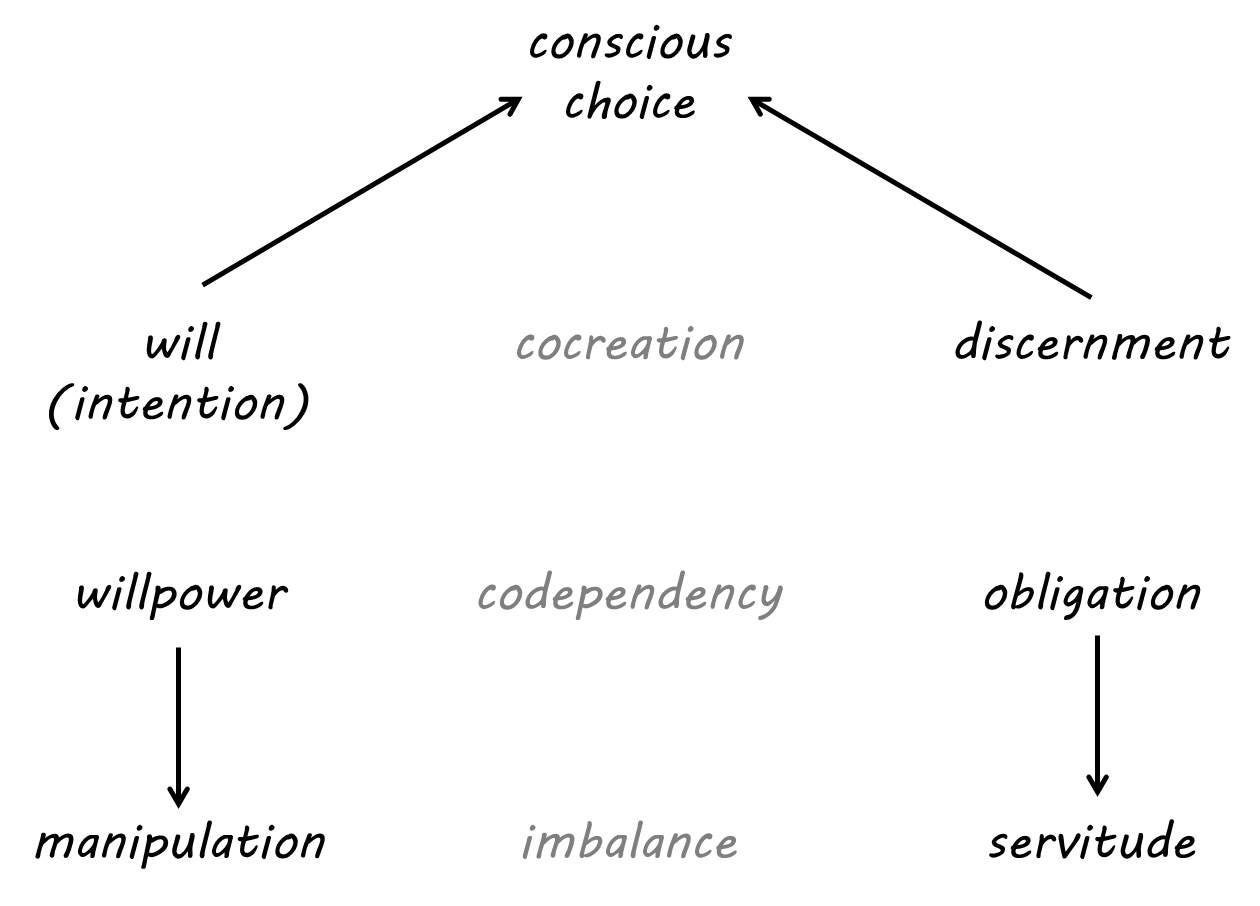

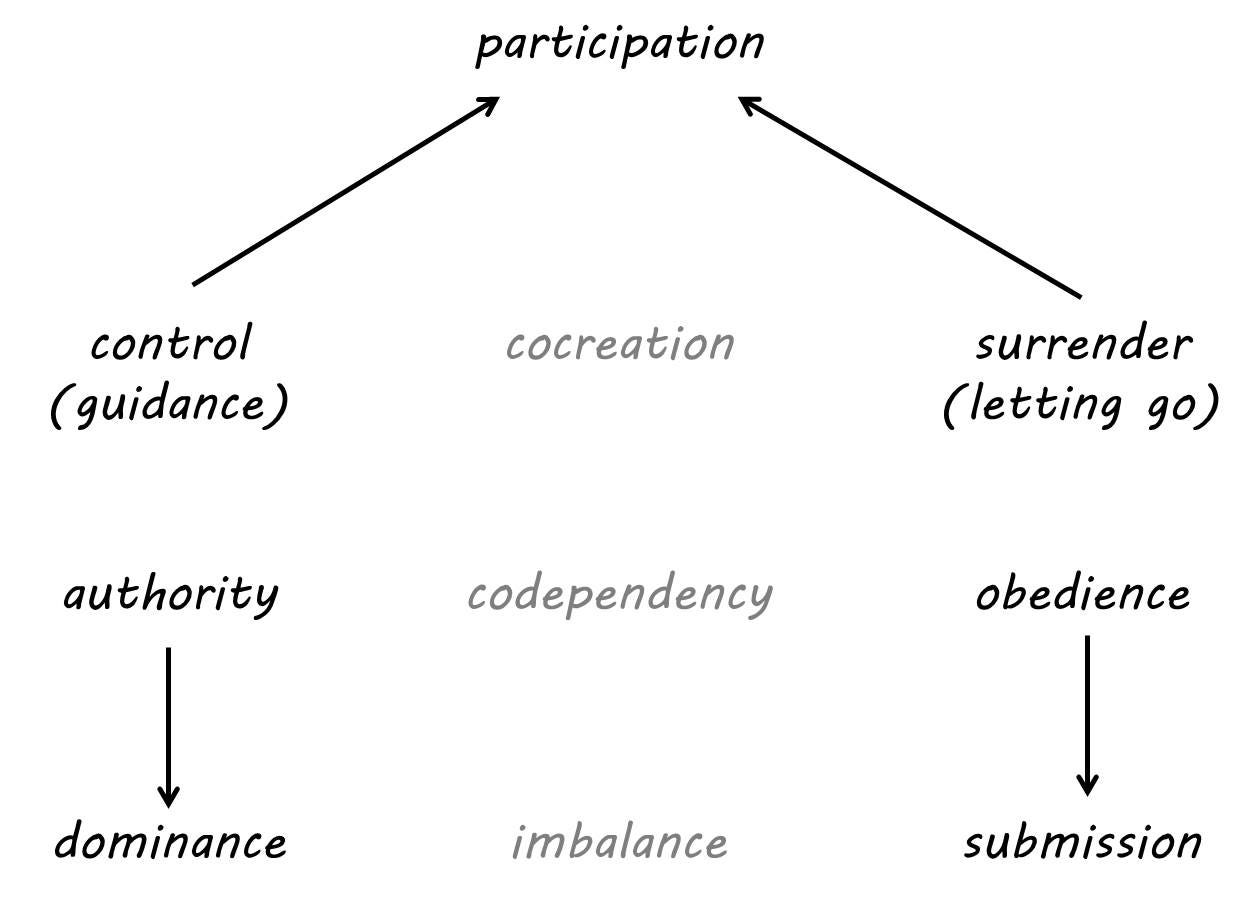
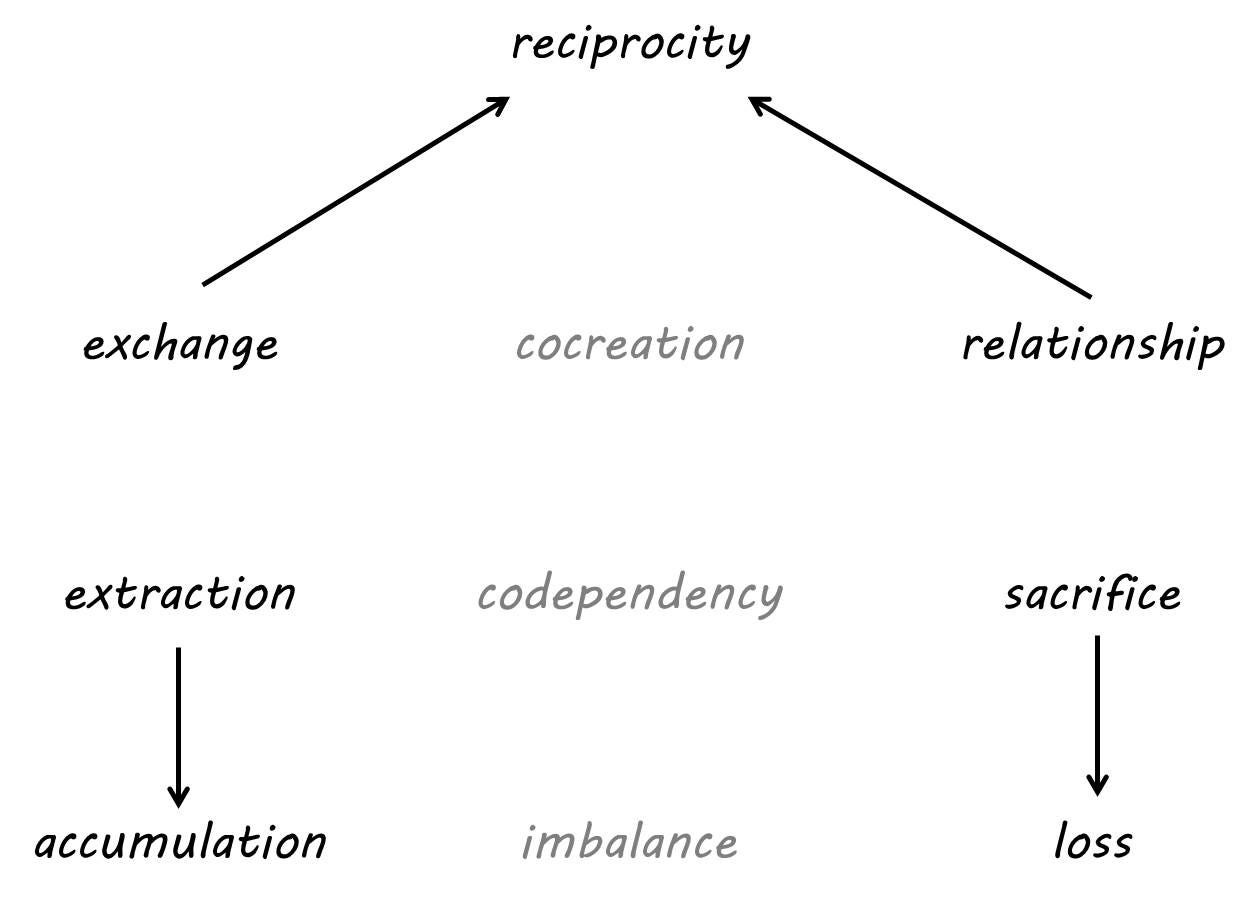
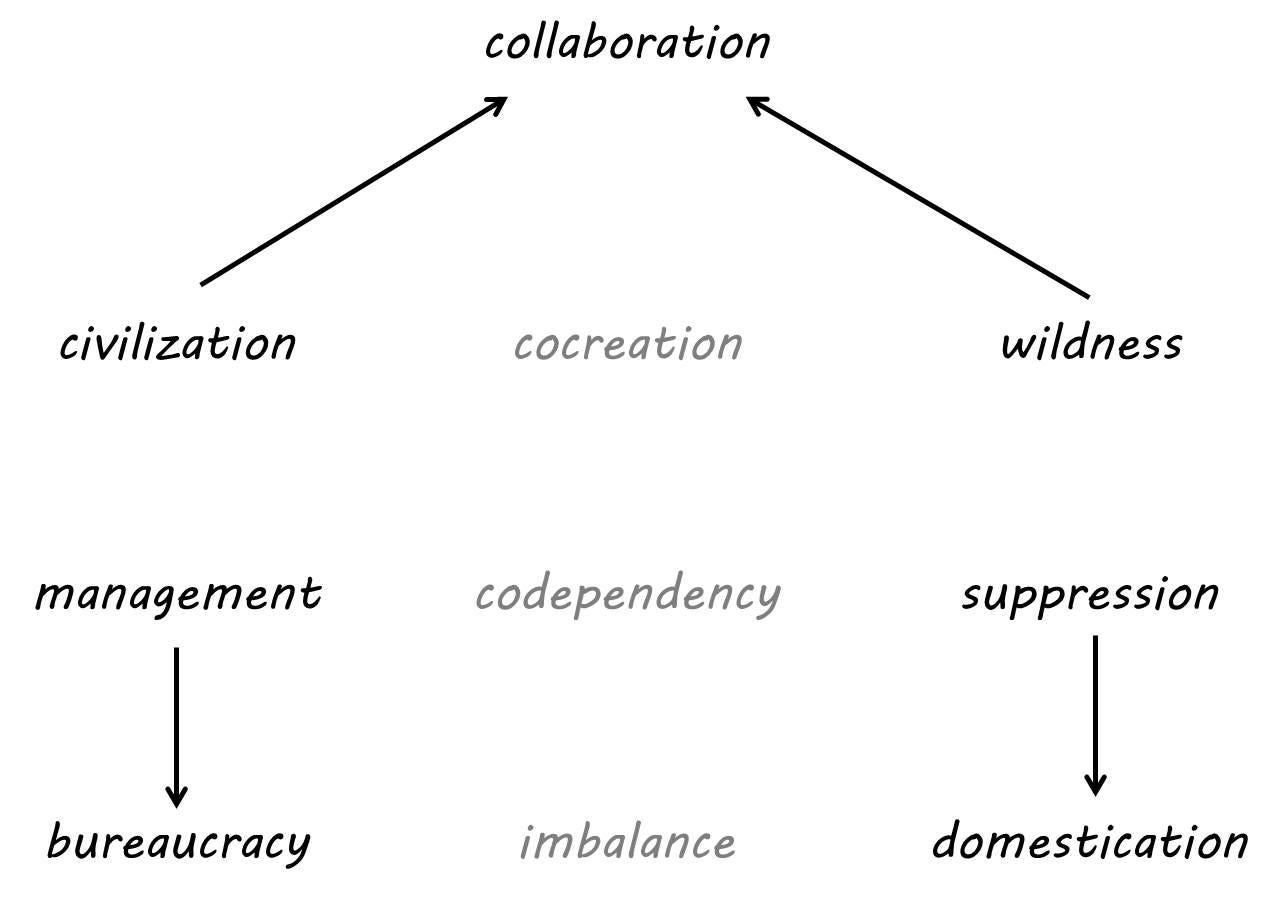
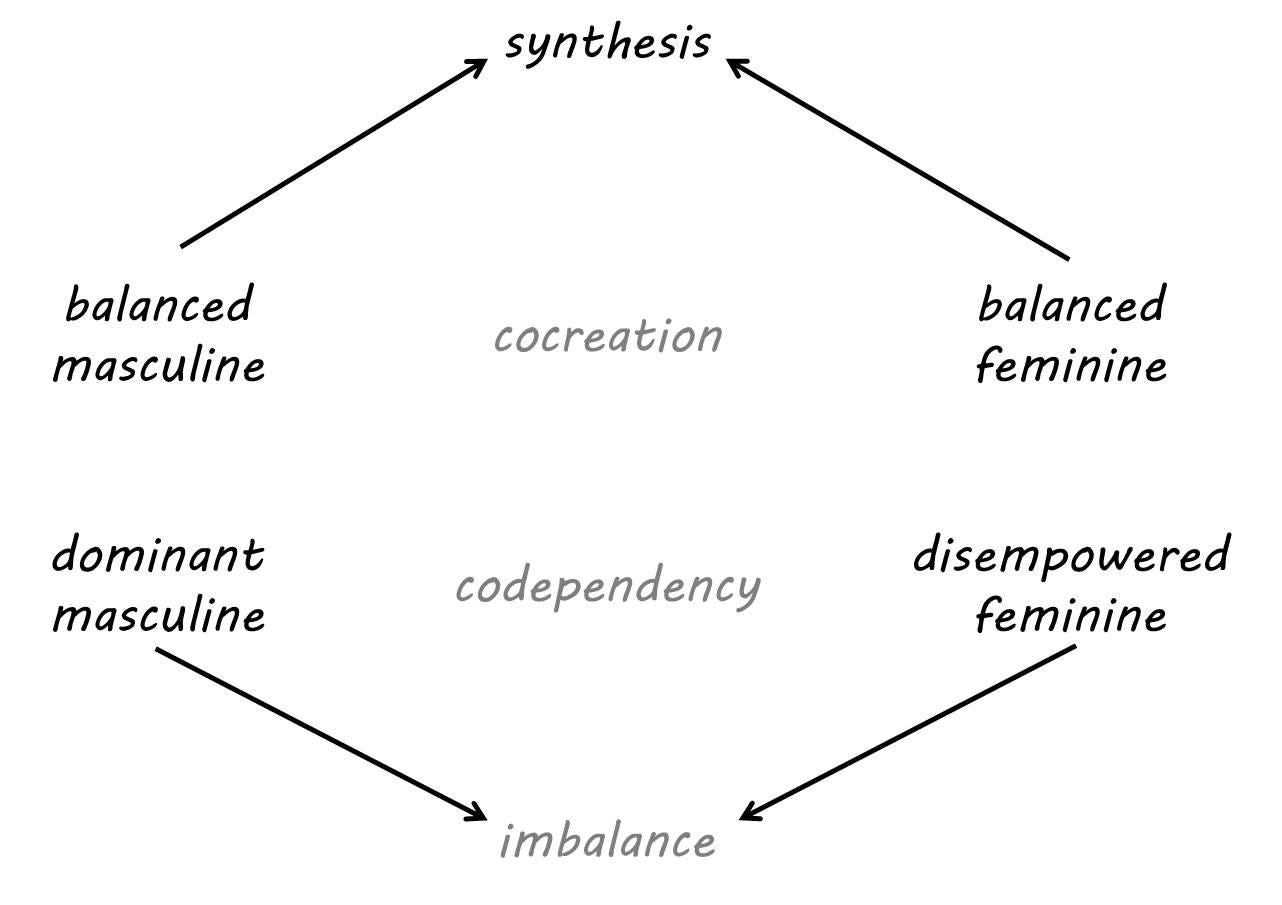
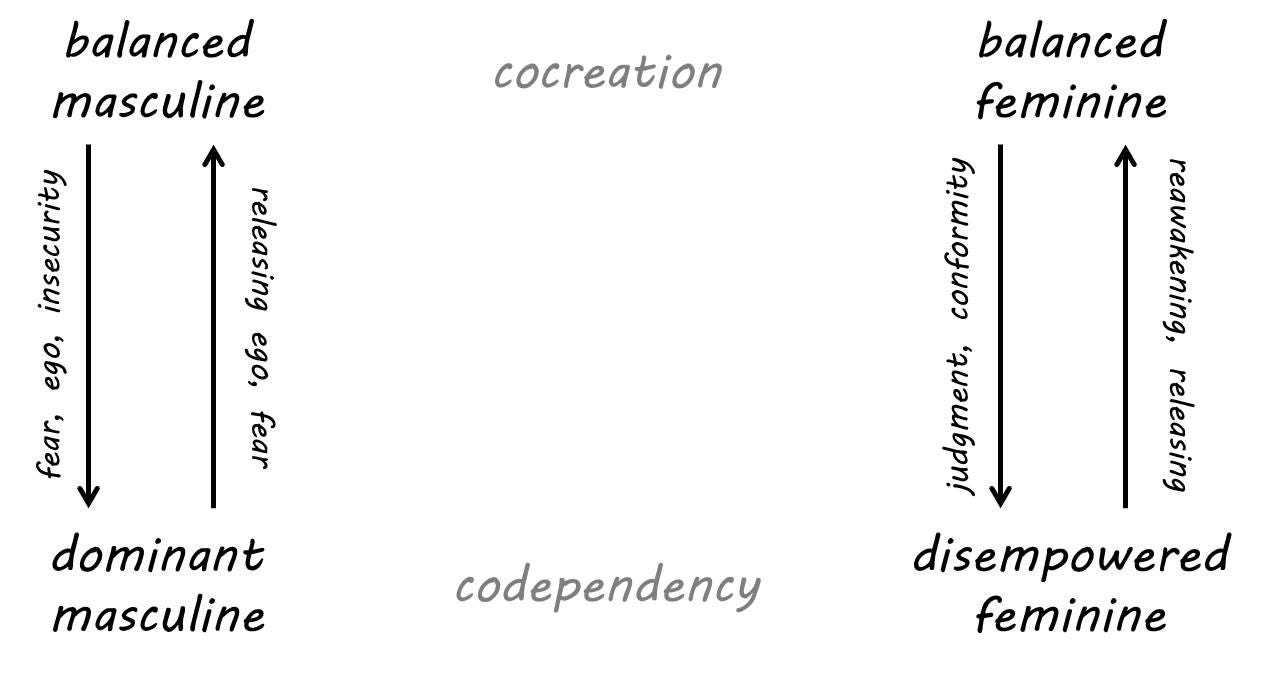
Drinking this up like medicine. Wow in so many ways. And thank you for deep-diving the complexity and making it so accessible. There is so much I loved within this but your last line might summarize it best: "We can tell ourselves stories in which we are neither good nor bad, but simply whole." So many of the stories we tell in our search for wholeness are stories of duality: good or bad. I feel liberated by being inspired to use a different lens. THANK YOU.
“We can focus on acts of ecological healing not because we ought to, or because we feel guity or obligated, but because we wish to, because we wish to weave ourselves and the greater pattern back into balance” - Because we wish to - YES! Realizing we have the power to choose, realizing what our preferences actually are. Changing the stories, as you are suggesting, because we realize that we want to, not because we have to or because are wrong. I really appreciate how you emphasize this thought out your written work.
What a bid Markael. This piece brings an immense amount of clarity to the initial framework. The development so clearly the result of deep contemplation. I am thankful for what you are bringing to light. I think codependency is a word that many people can tangibly understand, and it juxtaposes well with cocreation. I find the triplet of cocreation/codependency/imbalance, to be really clear with the four couplets you chose to delve into.
“Ultimately these states of imbalance are maintained by stories embedded within our cultures and societies and religions.” This point about the stories we maintain, is profound, and highlights how much of a personal process coming into wholeness is. I like that you distinguish between the internal/relational/collective - bringing these levels into relevance with regards to changing stories and healing imbalance, it all circles back to self as the initial place for this healing to take occur.
I love the final line: “We can tell ourselves stories in which we are neither good nor bad, but simply whole.” These are the stories I am interested in seeking, receiving, hearing, sharing. I look forward to these stories pouring forth more and more.